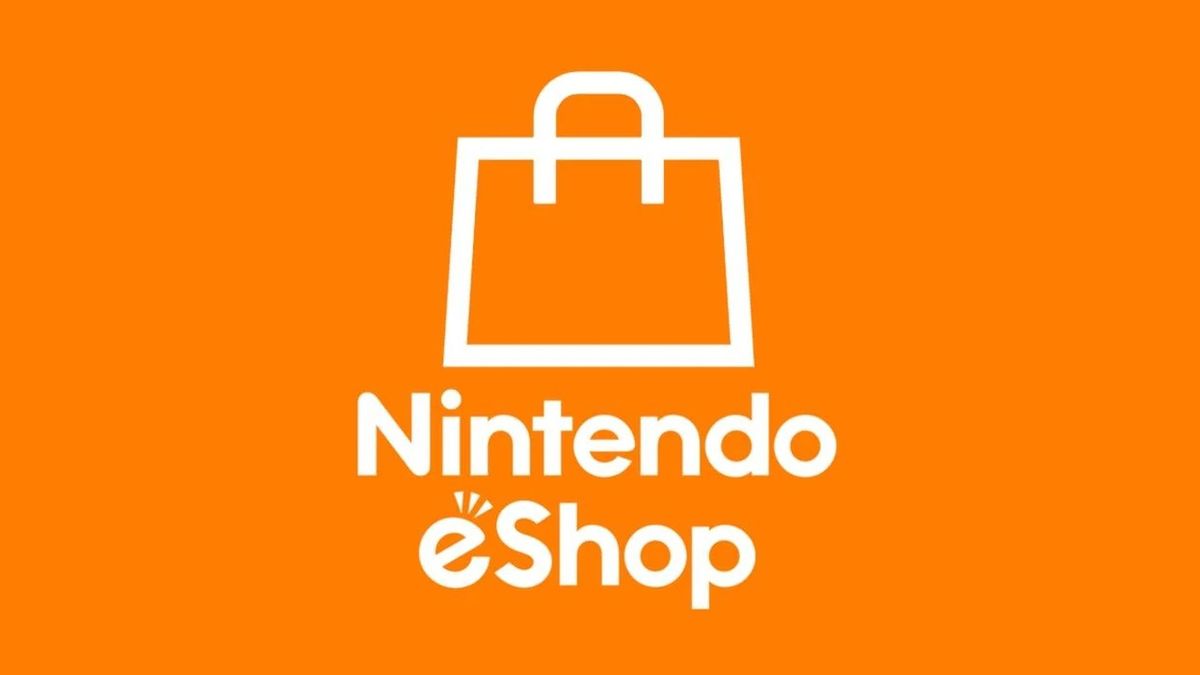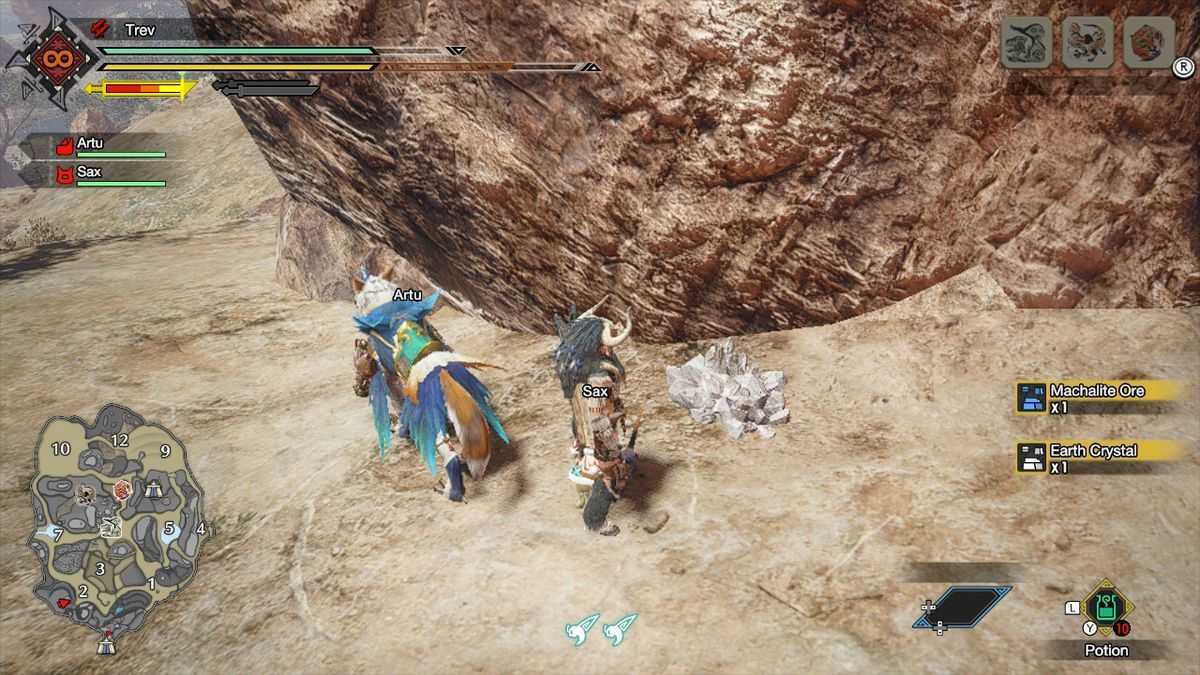The best Sonic games portray the iconic blue hedgehog in all his sound barrier-breaking brilliance. They’re fast, furious, challenging puzzle platformers that capture the nostalgia of yore no matter which era they’ve crossed the finish line in. The titular star was once a veteran of the Console Wars throughout the 90s, often locking horns with Mario – another global games icon he’d later partner with in the likes of Mario and Sonic at the Olympics. From pinball games to more traditional Sega fare, read on for 25 of the best Sonic games around that span the blue hedgehog’s 30+ year existence.
Best Sonic games
25. Sonic Boom: Fire & Ice

Yes, Sonic Boom. Yes, that Sonic Boom. But hear us out on why it deserves a spot on this list: after the woeful launch of Sonic Boom: Rise of Lyric and Sonic Boom: Shattered Crystal, it seemed like nothing could save Sega’s new spin-off series from going off the excessively-taped rails. And while Fire and Ice is far, far from perfect, it was also a significant improvement over its predecessors and worth checking out.
As you might’ve guessed by the title, Sonic Boom: Fire and Ice lets you wield the power of… well, fire and ice. By switching between these power-ups (as well as the extended cast of Tails, Knuckles, Sticks, and Amy) you can explore new areas and traverse special paths through the environment. The levels are generic and the bad guy is super forgettable, but in terms of actual gameplay, Fire and Ice adds new wrinkles that hearken back to the days of Sonic 3.
24. Sonic Spinball

The early Sonic games had developed a uniquely satisfying rhythm: jump on a few baddies, collect a ring or twenty, then hit a hill and bounce around until you found out whether you were epileptic. And for many players, that third high-speed component of the experience was where the money was at. So hey, figured Sega, why not fashion a whole game out of those bits?
The Genesis was already the console of choice for many pinball fans with a puzzling aversion to actual physical pinball tables, and Sonic Spinball held its own alongside the likes of Dragon Fury, Psycho Pinball and Crue Ball. And if you weren’t a huge Sonic fan, here was a game consisting of nothing but opportunities to bash the mouthy mascot around the head with huge flippers. Everyone wins!
23. Sonic Rush Adventure

Built for fast-paced dual-screen challenges, for a long time the Rush titles were the best way of getting old-school side-on action with a pinch of next-generation flair. Rush Adventure thrives in plus-sized side-on platform bursts, but also offers bouts of well-executed 3D to remind you that youre playing on a machine with some chops.
Technical aptitude aside, here’s a game that keeps Sonic and Tails off the streets, and introduces a non-mortifying new character in Marine the Raccoon, a character that serves as the springboard for a story of piracy, multidimensional invaders and interplanetary conflict. In its day, this was the title you fired up to disprove anyone who said the series had lost its way.
22. Sonic & the Secret Rings

Intended as yet-another rebirth for Sonic to coincide with Nintendo’s then-upcoming Wii console, Secret Rings takes its cue from the Arabian Nights – meaning developers were free to wear their Prince of Persia influences on their sleeves. The title played to Wii strengths with an emphasis on racer-style platform action and level design which favored speed-runs over precision-jumping challenges.
For an early Wii title the game holds up well today, with graphics that impressed on release and still turn heads. Critics at the time suggested that Secret Rings might mark a turning-point for the series then ailing fortunes; history and replay value prove them right.
21. Sonic R

Sonic and racing had always seemed an obvious fit, and Sega had made early forays into the concept with the Game Gear’s Sonic Drift titles. This Saturn title offered a substantial tech injection for Sonics pole-position aspirations, with co-developers Travellers Tales tweaking the game’s design to squeeze as much speed and detail out of the 32-bit hardware as possible.
It’s a short, colourful burst by today’s standards, which is no bad thing; and offers a look at the early days of what would become quite the profitable little sideline for Sega’s mascot. Later Sonic racers would only improve on the concept, making Sonic R an embryonic taste of what would become titles like Sonic All-Stars Racing.
20. Sonic Chronicles: The Dark Brotherhood

Expanding the hyperkinetic Sonic series into role-play territory was a stunt guaranteed to raise eyebrows, and you can bet Sega wasn’t about to just fob the job off on anyone. After all, Mario hadn’t gone the HP-n-battle-scenes route until Squaresoft was ready to do the concept justice – so similar interest in Sega’s experiment was piqued when genre titans BioWare were given the task.
While geared more toward the DS youth audience than fans of Mass Effect or Dragon Age, the game remains among Sonic’s stronger cross-genre ventures – to say nothing of more ambitious. Sequel rumors have been teased since the game’s release, but following BioWare’s incorporation into EA, these seem rather unlikely to come to fruition.
19. Sonic Colors

Assuring players that their aim was to rectify the missteps of earlier Sonic titles, Sonic Team gave players reason to look out for this Nintendo-exclusive soft reboot geared toward players too young to have grown up with the series side-on originators. The result, released for the DS and Wii in 2010, showed the wisdom of this strategy.
Instead of trying to roll together everything anyone had ever liked about a Sonic title, Colors was fast, tight, and offered variety via well-placed power-ups and environments built around high-speed thrills. Which, come to think of it, was pretty much everything older fans had always liked about Sonic games as well.
18. Sonic Unleashed

Okay, you know what? It’s been years since Sonic Unleashed, and Werehog jokes have put several GamesRadar children through college by now. We’re finally ready to lay the matter to rest and admit that Sonic Unleashed is actually a good game. It looks beautiful, plays fast ‘n’ flashy, and certainly can’t be accused of coasting on earlier successes.
Besides which, it’s worth bearing in mind that the Sonic games take place in a world where animals are always being turned into creepy creatures. The whole reason the Sonic/Robotnik beef got started in the first place was due to the latter turning animals into monsters. Meanwhile, Mario is getting turned into frogs and bees and mythical Japanese raccoon without so much as an objection. And besides that, the non-Werehog bits of Unleashed were a welcome return to form for the Hedgehog, bringing 2D perspective and high speed thrills back to the forefront.
17. Sonic the Hedgehog 2 (Game Gear/Master System)

The Master System and Game Gear versions of Sonic 1 had hewn fairly close to the Genesis standard, but Sonic 2 on Sega’s 8-bit systems bore little comparison to the 16-bit title of the same name. The game looked different, sounded different and played like a Sonic title, but one built for the smaller systems strengths. If the high-speed multiplayer pyrotechnics of Sonic 2 Genesis were reined in slightly for this version, in their place were new vehicle modes and gameplay gimmicks to push the 8-bit hardware.
Did the different approach pay off? While the 16-bit Sonic 2 is the one that’s remembered, this title remains a thrilling challenge with plenty of surprises for first-time players.
16. Sonic Chaos

Having played to the Game Gear and Master System’s strengths with the distinctly standalone 8-bit versions of Sonic 2, repeat series contributors Aspect Co. were given free reign to continue the breakaway adventures of Sonic and Tails on the then-dwindling Master System and Game Gear. Which hey, if you were still actively rocking a Master System in 1993, was probably the best news you’d heard all year.
And while attention was focused on the series increasingly hi-tech fortunes, Chaos quietly continued to remind players that they were still playing a Sonic game, damn it. Tails was finally playable (having kept to an NPC role in the 8-bit Sonic 2) and Sonic continued to run as fast as he could through as many gravity-testing scenarios as the older hardware would permit. A late contributor to the series’ Golden Age, but it just scrapes in.
15. Sonic & All-Stars Racing Transformed

Having well and truly found its feet on the racetrack, this second racing entry in the Sonic/Sega All-Stars crossover is a standout for either franchise. Presenting players with a variety of characters and courses drawn from the breadth of Sega history, it’s at once a Smash Brothers-esque fan-service extravaganza and an instantly accessible, easy-to-like addition to the mascot-racer genre.
The game’s transforming vehicles keep races interesting, and loving callouts to earlier properties like Golden Axe and NiGHTS serve as reminders that Sega has known how to make a good game since before many of its current fans were born. Early issues with the game’s Wii U version were soon patched and served as a strong early showing for Sonic on the Nintendo platform.
14. Sonic Adventure 2

One of the endearing qualities of the Sonic series has long been its trans-Pacific development history, with Japanese and US teams both having contributed to the franchise over the years. Sonic Adventure 2 may have marked the series last outing on a Sega console – the Dreamcast had been discontinued months earlier – but it was also the first to be developed primarily by Sonic Team USA, whose San Francisco streets influenced the games urban environments.
Just as US input had seen the Genesis’ Sonic 2 expand substantially on the original’s high-speed bravado, Sonic Adventure 2 was a much zippier, more stunt-filled experience than its comparatively plot-heavy predecessor. It’s an influence that served the series well, and would ensure positive receptions for later ports of the game.
13. Sonic Advance

The new millennium brought with it new rules: there was a different President in the White House, airplanes wouldnt fly unless you took your shoes off, and original Sonic games were now making their debut on Nintendo’s Game Boy Advance. And at the time, these releases were often superior Sonic’s console adventures.
Nowadays, Sonic and Nintendo are more like old friends with a colorful backstory – but when the hedgehog first stepped out with Big N in 2002, console war veterans probably wondered what all those playground arguments had ever been in aid of. Showcasing classic 2D Sonic action, Advance gave birth to a consistently-successful new franchise, reducing Sonic’s die-hard brand loyalty to a distant memory from the halcyon-toned 1990s.
12. Sonic & Knuckles

Nowadays, we think nothing of it when a developer builds so much game that the excess has to be mopped up and rolled into a DLC extension; but back before downloading was a thing, a physical add-on for adding new content to your game cartridge was quite the talking-point. Never gimmick-shy, Sega made the most of the oddity (made mostly out of resources that couldn’t fit into Sonic 3 in time for release) with a variety of new unlockables, depending on which Sonic cartridge the game was paired with.
Offering new ways of playing through Sonics 2 and 3, as well as added levels exclusive to the Knuckles-themed chunk of the game, the title extended already beloved releases and tided fans over until everyone went out and bought a Sega Saturn (well, that was the hope). It’s that first 16-bit heyday, extended just a little longer.
11. Sonic the Hedgehog 3

The Sonic franchise has gone from bust to boom more than once – but if there’s any period that can be said to represent the character’s Golden Age, it would have to be the late-era 16-bit generation. And while not necessarily the best of that era, Sonic 3 is probably the one that the most people played.
Having achieved widespread ubiquity via Genesis bundle-filler Sonic 2, the next title rewarded series fans with a greater degree of variety between characters, stages, and enhancements. In many ways, it’s the best parts of Sonics 1 and 2, rolled into a frantically-spinning ball and padded out with enough new surprises to fill two games’ worth of content. Which was appropriate, with Sonic & Knuckles coming hot on its heels.
10. Sonic Rush

While Sega was tweaking the Sonic formula with high-profile home console outings in the mid-’00s, the company placed a bet on this side-scrolling throwback – a throwback that would go on to become one of the series’ most celebrated entries. After all, we don’t want to spoil anything for you, but a recurring theme of Sonic’s life story is going to be Sonic and 3D don’t always mix.
So when bringing the character to the DS, Sega wisely chose to employ the handheld’s polygonal capabilities diligently, mainly by adding 3D characters and boss encounters to a side-scrolling jump-and-dash extravaganza much more in line with the series’ roots. The result is a game that bridged the gap between hardline retrogamers and fans of the character’s later, chummier outings.
9. Sonic Lost World

After examining Sonic’s long history in Sonic Generations, Sonic Lost World starts a whole new chapter for the Blue Blur – partially by borrowing from Super Mario Galaxy. Instead of running on city streets, Lost World restricts Sonic to floating planetoids that restrict his movement so he can focus on pure speed. It seems so obvious that it’s strange Sonic hadn’t done this before (not counting the cancelling Saturn game, Sonic X-treme).
The 3D controls are better than ever for Sonic, and the Wii U-powered visuals are candy colored perfection. Lost Worlds builds on what Sonic Colors did and, save for some annoying difficulty spikes, makes for a great Sonic game for every type of Sonic fan.
8. Sonic Adventure

You have to understand, seeing Sonic transition so seamlessly into 3D in 1998 was like bumping into an old friend you’d lost touch with, only to find that since you last spoke they’d become World President George Clooney. Seriously, the Dreamcast original still looks good alongside some games made 10 years later.
Mapping Sonic’s twitch-centric gameplay onto the Z-axis would prove a continual challenge for Sega, but for a while there, Sonic Adventure made it look as if the company had nailed it. At the very least, it was a step up from the previous attempt, Sonic 3D Blast, which really was neither 3D nor a blast of any kind.
7. Sonic Generations

No one can accuse Sega of being unwilling to take Sonic in new and interesting directions – even if those directions don’t always sit well with longtime fans. When the company celebrated the character’s 20th birthday with Sonic Generations, Sega set the OG Sonic alongside his contemporary counterpart in an all-time fan-gripe showdown for the ages.
As perennial fan-gripers with a strong bias toward fun and/or forgetting how many years we’ve been alive, we welcomed the new Sonic as one of the character’s best outings since the Genesis era and were disappointed to hear that Sega has no plans for Classic Sonic beyond Generations. Still, if ’90s Sonic was ever going to cash out, you’d think he’d have done it by now, what with the eleventy billion or so times players sent him to his death already…
6. Sonic Pocket Adventure

Perhaps you took note of the Neo Geo being reborn with the official SNK handheld (opens in new tab) named the Neo Geo Gold. If you, like us, are still trying to work out what to make of the iPhoney-looking contraption, consider that SNK’s been doing crazy things to portable gaming for years–such as having the first ever Sonic game on a third-party console, 1999’s Sonic Pocket Adventure for the Neo Geo Pocket.
Playing much like the Genesis’ Sonic 2, with a few Sonic 1 elements and Sonic 3 music tracks mixed in, Sonic Pocket Adventure showed that SNK’s handheld was good for more than just SNK games; regrettably, it’s a lesson few took to heart, as evidenced by the Pocket’s quick cancellation in the western markets.
5. Sonic the Hedgehog (Game Gear/Master System)

If you’ve played the guts out of the Genesis versions of Sonics 1, 2 and 3, you probably see yourself as quite the arbiter of all things old-school and Sega. Before deciding you’ve seen all the Sonic the 2D age has to offer, though, spend some time with the 8-bit versions of the series’ initial entries.
Sonic 1 and 2 on the Game Gear and Master System share some cosmetic elements with their better-known counterparts, but for the most part are entirely new adventures – including early forays into vehicle sections and a dauntingly fast-paced take on the series’ signature bonus stages. The titles survive on Nintendo’s Virtual Consoles and various compilations; and on the shelves of the nation’s thrift stores, just waiting to be dusted off by the right lucky retro-friendly hoarder.
4. Sonic the Hedgehog (Genesis)

“The game that started it all” is an easy way to say it, at least if you don’t feel that it all started when someone at Sega brought a Mario game to work and said, “Guys, we need some of this action.” Regardless of the character’s origins, his debut was a resounding success, in one shot propelling the attitudinal anthropomorph to international recognition.
While establishing Sonic’s signature zippiness to the satisfaction of a generation yet to discover the wonders of Ritalin, the series’ first installment is also deceptively intricate, rewarding repeat play with enough extras and secrets to keep players interested until later sequels ramped up the speed even further. It’s a snapshot into a time before buzzwords like Blast Processing changed the way we see the world; and to think the Nobel Committee continues to look down its nose at Sega for that innovation.
3. Sonic 3 & Knuckles

Nowadays, when a developer releases new bits of game with bonus additions to the original title, we call it DLC and grudgingly devour it whole on launch day. But back in the ’90s, that extra content had no way of getting to you besides the medium of a whole other game cartridge; a special one, no less, that could be physically bolted onto older Sonic games to add a new character and teach kids all sorts of erroneous things about what an echidna is exactly.
But the cart’s best use is probably as a Sonic 3 enhancement device. The Knuckles-augmented threequel is both the character’s finest hour, and our favorite way to play Sonic 3 itself. The original game was designed with the intention of featuring Knuckes as a core character, and the three-way ability divide between Sonic, Tails and Knuckles is one of the add-on’s biggest overhauls. The separate games deserves spots on this list, but they work best in tandem.
2. Sonic CD

If we can just turn your little cookie-cutter world upside down for a second here, the canonical version of Sonic CD isn’t actually the Sega CD version at all. Though, admittedly, the 1993 original looked pretty special in 1993 – particularly next to most Genesis titles, and particularly if you were young and undiscerning enough to fall within Sonic’s target audience at the time.
Dig that game out now and all the new bits (such as Metal Sonic, in-game time travel and, ahem, Amy Rose) look a little less shiny, but are surprisingly innovative for the series. Still, it was starting to show its age, at least until a recent downloadable port, rebuilt for modern consoles and mobiles, is the game that actually plays as well as you remember.
1. Sonic the Hedgehog 2

The game where much of the Sonic formula fell into place, Sonic 2 on the Genesis is probably the title most commonly associated with the character. The game launched in November of 1992, the same month Bill Clinton – the model for Sonic’s can-do personality, according to creator Yuji Naka (opens in new tab) – was elected to the Oval Office. And it’s fair to say that both events had a comparable effect on the next decade.
Launched amid a barrage of international hype, Sonic 2 would become a standard of Genesis players’ collections as the pack-in game for the redesigned system. So fruitful was the title’s development that many of the more ambitious elements intended for Sonic 2 (before getting cut) would end up forming the backbone of later entries in the series. Meanwhile the bits you did get – Tails, the Spin Dash, increasingly inventive uses of the Genesis hardware – are what made this one an easy choice to rank as the best Sonic game ever made.
 Game News Video Games Reviews & News
Game News Video Games Reviews & News



